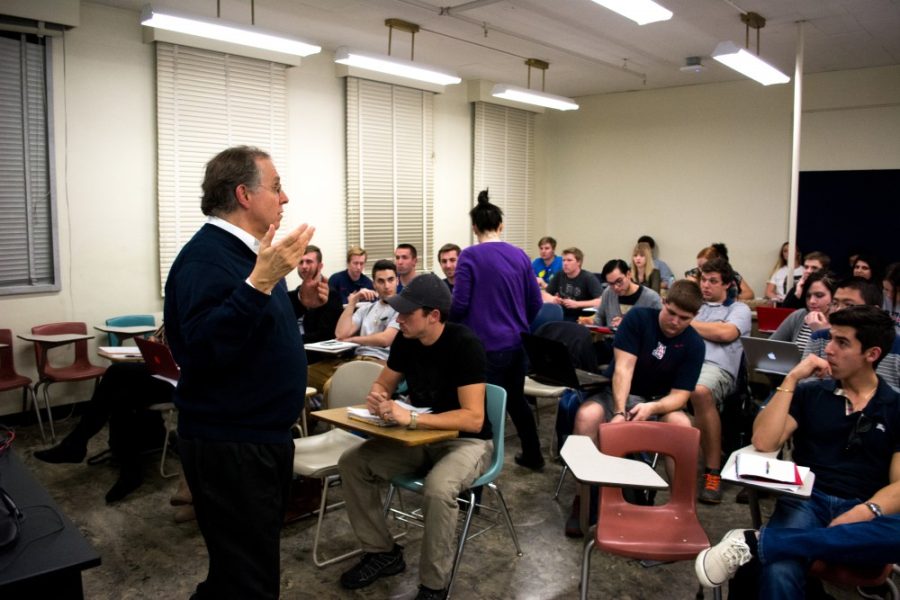To the acting U.S. Solicitor General there are clear limits to the scope of the nation’s Constitution, particularly in times of war.
Neal Katyal addressed a crowd at the James E. Rogers College of Law on Monday as part of the J. Byron McCormick Society for Law and Public Affairs.
Lawrence Ponoroff, dean of the College of Law and Samuel M. Fegtly Chair in Commercial Law, welcomed guests to the lecture and added that it was of great importance “”to our educational history.””
“”Indeed the Solicitor General position has been referred to as the best lawyer job in the country,”” Ponoroff said.
Katyal also served as the national security advisor in the U.S. Justice Department, and as co-counsel to then-Vice President Al Gore during the disputed 2000 presidential election. He has had articles published in nearly every major law review and newspaper in America and appeared on many nightly news television programs, including “”The Colbert Report.””
Katyal began his lecture, “”The Constitution in Conflict: 1850-1950,”” by saying it took two and a half years after being formally invited for him to come to the UA.
“”Then there was an election, and it took me quite awhile to get here,”” Katyal said. The audience laughed, and then Katyal dove into his speech. He highlighted two main cases he was involved with in particular, Hamdan v. Rumsfeld, which held that military tribunals could not be held without authorization from Congress, and Grutter v. Bollinger, a case which upheld the validity of the affirmative action admissions policy at the University of Michigan. Katyal was the lead counsel in the Hamdan case.
“”Hamdan is simply one of the most important decisions on presidential power … ever,”” Ponoroff said.
Katyal spoke of options that are available in times of war that can serve as alternatives to the checks and balances system, something which he said is outside the reach of the Constitution.
“”You can’t have a committee of 535 people in Congress running the war, it requires way too many things happening way too quickly … but that does of course pose a very rather serious challenge to our system of government,”” Katyal said. “”Some suggest we can really just cross our fingers and hope to elect a good president that will do the right thing.””
He said that his objective in the lecture was to suggest that the ingredients for such a solution laid within the executive branch itself.
The McCormick lecture ended at 1:20 p.m., and a reception followed in the Lewis and Roca Lobby, where people could meet with Katyal. Charles Ares, retired UA law professor and special advisor to the college, called the lecturer the “”2011 edition”” of distinctive lecturers who have been invited since 1978.








